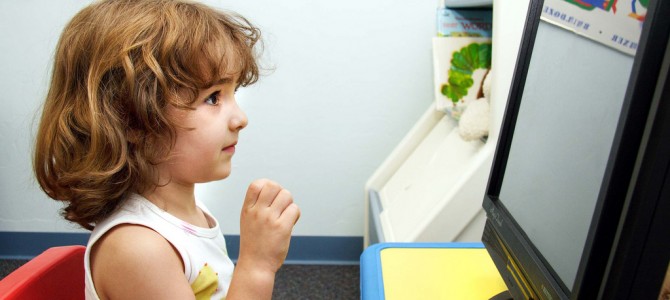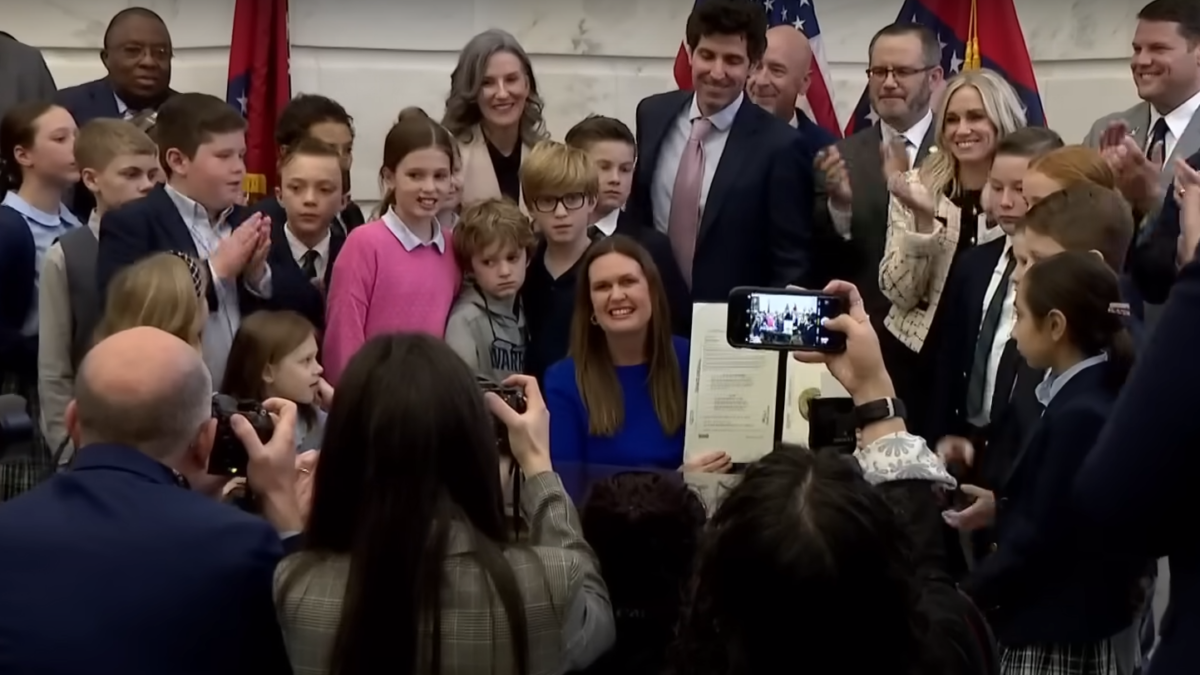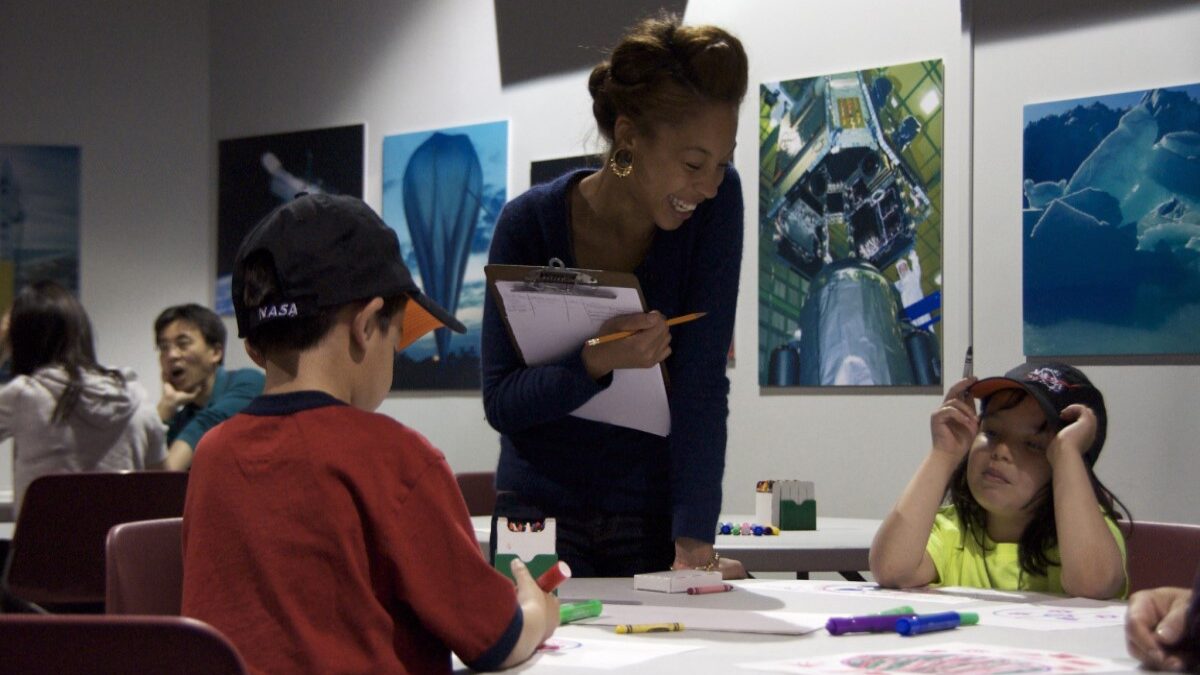
When artists of the 1960s imagined the future of education, they pictured it sleek, efficient, and technologically advanced. The futuristic world of strangely elliptical buildings and incongruously boxy robots included idealized classrooms where children sat at screens and interacted with responsive, albeit automated, educators. Technology today may be more sophisticated, but most classrooms still do not gleam with chrome, nor do students spend their day wondering if their robotic teacher will blow a fuse. The closest any school comes to the screen-lit, button-controlled, automated classroom of old cartoons is the online charter school, a form of public education that has become a sticky problem in some states.
Cyber charter schools usually make the news because of money: alleged fraud, concern that companies and individuals profit from public money, bills outlining funding reform, and even calls for states to eliminate support for cyber charter schools altogether. People are understandably concerned about how taxes are used. More importantly, though, people are beginning to express concern that cyber charter schools across the country do not provide quality, or even adequate, education. The results so far fail to impress. According to a Stanford University study, all Pennsylvania cyber charter schools underperform, and those in others states fare just as poorly in math and reading achievement.
The achievement problems of online K-12 schools may turn out to be surprisingly low-tech: teachers and families have different roles in a cyber school than in a traditional brick-and-mortar school. Families, especially those in failing school districts who may have very limited education options for their children, often view cyber charters as a viable choice. Before enrolling students, however, families should carefully consider the needs of their children, the active participation parents or caregivers needed to support the students, and the limited role of teachers in an online school.
Families Looking for Radical Change
When I mentioned to a neighbor that my daughter was enrolled at the time in a cyber charter school, she paused for an uncomfortably long time before responding, “But she doesn’t have a social anxiety disorder, does she? I thought only kids with social problems when to online schools.” This was news to me, but it turns out that my neighbor was nearer the truth than I suspected. June Ahn, an assistant professor in the College of Information Studies at the University of Maryland, has studied cyber charter schools in Nevada, Pennsylvania, and Minnesota. She found that 87 percent of the students enrolled had had problems in traditional public schools that motivated them to seek a radical change. These included bullying, truancy, medical needs, and academic failure. A small number of families turn to online schools because of religious convictions or a desire for flexible schedules, but the student-body profile includes many more children from families that have been forced to look for solutions to troubling situations.
Ahn mentions the problematic fact that most students enrolled in online schools need guidance, organization, and encouragement to address social and academic needs, but are being placed in a less-structured setting. If a student’s problems in formal classrooms stemmed from the lack of effort, poor self-control, social disorders or family dysfunction, then online education, where success depends upon personal initiative and strong parental oversight, may be less than idea for that child. In such cases, it would be no wonder that student achievement lags behind students in other public schools.
Parents Unprepared to Teach
Unfortunately, many parents are unprepared for the limitations of online education and are shocked to discover that the education of their children in such a school falls heavily into their own hands. After two years of working with online charter schooling, I concluded that this form of education, particularly for elementary students, only works if the families view it as supported homeschooling. The parents teach their children and oversee the daily work, which demonstrates a significant shift in the teacher-student-parent relationship. Ahn describes the change by saying “teachers become vital mentors, consultants, and conduits of education and information between school and family” (22), rather than the managers and organizers of a classroom.
In parent discussion forums, many working parents of elementary school students complain that they had been sold a bill of goods, that online schools had emphasized how each student would have an online teacher that would do the teaching. Instead, these parents found themselves in the unenviable position of working full-time and trying to educate their young children. Parents usually hold the title “learning coach,” even though oversee lessons, arrange and manage the classroom, and explain concepts. Essentially, I taught my daughter under the title “coach” and the teacher coached us from afar under the label “teacher.”
When my daughter’s kindergarten teacher called for a weekly phone interview, I finally asked her (a) How much impact do you have on each child as a teacher at an online charter school? and (b) To what extent are you at the mercy of parents? She graciously admitted that her role rested squarely on the active participation of parents, their willingness to engage her, and even each individual family’s understanding of what good education means. At the early elementary level, she advised, coached, and evaluated the child’s progress. During class times, students had limited interaction with the teacher and almost none with other students because they communicate through chat boxes (parents type for the youngest children) and headsets with microphones. While some online schools do offer classes in physical buildings, these are usually limited to a few days a week and to specific locations. Most learning occurs at home with learning coaches and through lessons presented via video chat, which means that parents or caregivers hold a significant amount of responsibility for student learning.
I call it supported homeschooling because families receive from cyber charters computers, printers, curriculum, books, school supplies, and even Internet subsidies. In fact, for some families already homeschooling their children, the appeal of reducing the cost of curriculum and materials is enough to enroll their children. Problems arise, however, when parents expect the school to teach their children and themselves to simply oversee homework. The shifted roles of parents and teachers end up being significant factors that may greatly affect student achievement. In the end, providing materials is very different than providing the structure to support student learning.
Americans still search for the great virtual school of our dreams, with its cutting-edge equipment and near-magical education. Each time technology leaps ahead, the mundane reality of finite humanity brings it back to earth. Students need interaction with other people, supportive families, and structure to make learning possible, no matter how advanced the technology may be. Instead of sleekly efficient, highly stylized learning machines of science fiction, virtual schools rely upon people to mold and shape it into solid education. Many families will require guidance to do this well, and some may not succeed, which means artists and dreamers should stay at their drawing boards, imagining what education could be someday.
Allison Kieselowsky, a seasoned teacher and reading specialist, resides outside of Philadelphia with her husband and four daughters.









